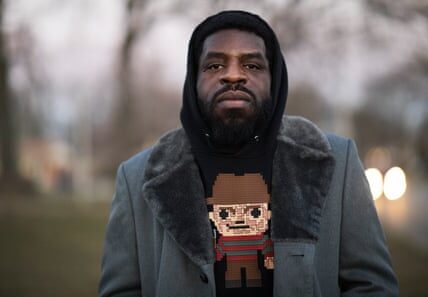Could the next series of Bridgerton mark a new era of on-screen lesbian romance?
Season three of Bridgerton has been a solid eight hours of swoon-worthy love confessions, glimmering gowns and orchestral Taylor Swift. The ultimate thrill, however, might be found in a 50-second scene affixed to the very end of the finale: a scene with no kisses, no confessions and no sex. How is this possible? Lesbianism, that’s how!
Just before the end of the final episode, the show packs in one more twist through the introduction of a new character – absent from the books by Julia Quinn on which the series is based, and loaded with queer implications. The blushing reaction between the two female characters during their first meeting tells all: Bridgerton will feature a lesbian couple in a coming season.
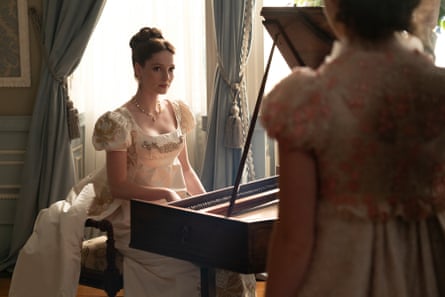
Why are Regency sapphics so stirring? Unhappy fans of the books have argued that this gender-swapped romance has robbed them of a heterosexual love story they cherished. Other displeased fans see this as an undue effort to fill diversity quotas – Bridgerton has included two other queer subplots before, with one of the Bridgerton brothers being identified as pansexual by the series’ showrunner Jess Brownell. The spin-off series Queen Charlotte: A Bridgerton Story also included a clandestine romance between the queen’s right-hand man and the king’s valet.
But the specific historical erasures of lesbian identity have been acknowledged by queer historians and lesbian theorists alike; queer women have always existed, but we know precious little about their lives. The poet and essayist Adrienne Rich described the expunging of queer women from history as a “great silence”.
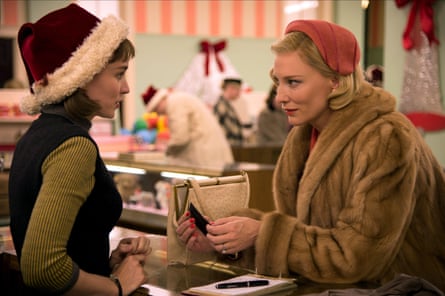
It is through historical fiction that lesbians can be imagined in the popular imagination. And period dramas have become the quintessential format through which to tell these love stories. But still, they seem to encounter the same pitfall: lesbian romances set in the past are always so bleak.
Whether it’s the forces of patriarchy wedging them apart (Portrait of a Lady on Fire, Dickinson) or death’s hand plucking them away from each other (The World to Come, The Haunting of Bly Manor), we seldom see a happy ending for period drama sapphics. Even when they do get an ambiguous happy-ever-after – often represented by a tentative gaze across a crowded room – it usually comes at great personal sacrifice. The titular lead of Todd Haynes’s film Carol is forced to pick between her lover and custody of her daughter, for example. In Francis Lee’s Ammonite, Mary is only able to be with Charlotte after the tragic death of Mary’s mother.
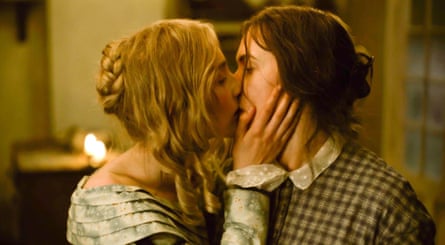
So what could be different about lacing lesbians into corsets and sending them to the glittering ballrooms of a racially blind Regency-era England? Well, put simply, Bridgerton is fun. Placing a lesbian couple (let alone an interracial one) in this illusory world of happy endings could well be a win for queer representation.
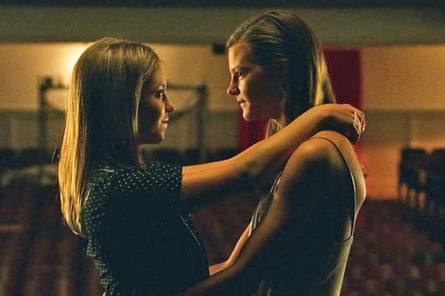
There is no denying that the show has previously handled diversity clumsily. Its explanations for how Regency England came to be without racism but still cleaves to patriarchy, homophobia and classism are nonsensical. And representation is about more than visibility and normalisation. It is also about kindling the imagination. Netflix’s 2018 series Everything Sucks!, cancelled after just one season, jumpstarted Sydney Sweeney’s career – and my own departure from the closet. The show’s depiction of a butterflies-inducing relationship between two schoolgirls allowed me to imagine what life as a lesbian could look like. It did not have to be dreary and sacrificial – it could be light.
If anyone can patch up the happily-ever-after shaped hole in the tapestry of lesbian history, Shonda Rhimes’s Bridgerton surely can.
Source: theguardian.com
